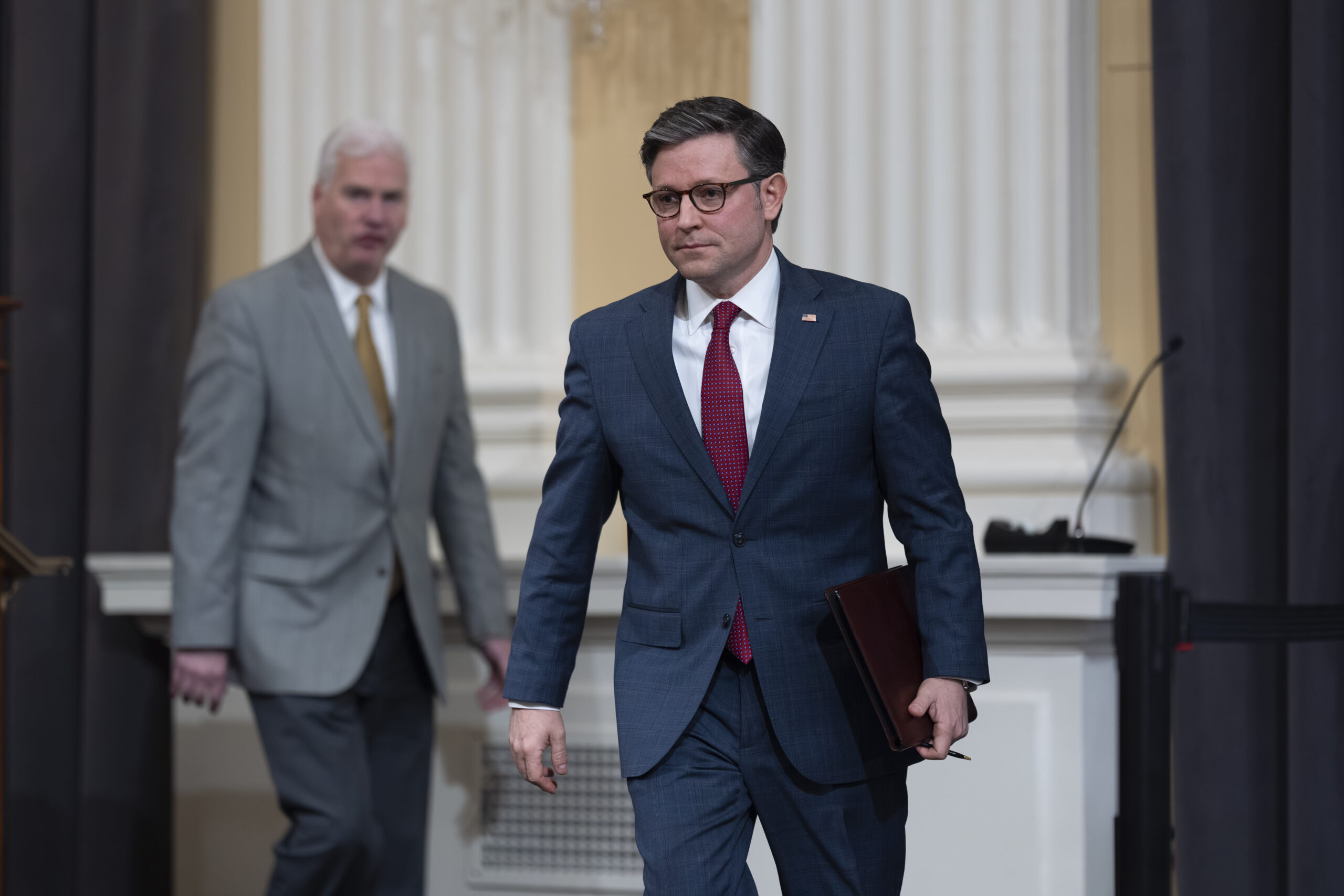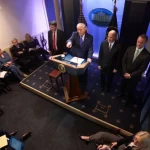

A majority of House lawmakers are in support of passing a bill to provide aid to Ukraine and Israel —they just can’t agree on how to do it.
A bipartisan group of representatives is pressing forward with a plan to pressure Republican leadership to bring a foreign aid and border security bill to the floor. If the top GOP members refuse, the group is looking to use a discharge petition that would allow lawmakers to vote on the legislation even without leadership’s approval.
Rep. Brian Fitzpatrick (R-PA), one of the lawmakers leading the charge, said the petition to bring his $66.3 billion military aid and border legislation will become eligible for signatures on Friday, starting the clock for leadership to respond.
“Our proposal was really meant to do a couple of things,” Fitzpatrick said Wednesday. “No. 1: Provide a timeline and a pressure point for House leadership from both parties to get something done. The discharge that I filed is putting a clock on a time-sensitive manner. That is all this is.”
The pressure provides an incentive for House leadership to bring the legislation to the floor voluntarily, as it would allow lawmakers to propose amendments before finalizing the bill text. But that can only happen, Fitzpatrick said, if the bill is advanced “consensually.”
“If it has to be forced to the floor, it obviously won’t be an open amendment process,” he said.
For a discharge petition to be successful, it must receive signatures from 218 members for the legislation to be brought to the floor. That means Fitzpatrick would need some support from Democrats to surpass the majority threshold.
Fitzpatrick said he was “very confident” he could get the signatures needed to advance the legislation, although the path forward on the legislation has become murky as lawmakers on both sides of the aisle have come out against the proposal.
“I can’t vote for his bill,” said Rep. Jim McGovern (D-MA), ranking member of the House Rules Committee. “I find the absence of humanitarian assistance to be, quite frankly, cruel and offensive.”
Democratic leaders also have not endorsed the bipartisan bill, instead expressing support for the foreign aid proposal that was passed by the Senate earlier this month. That path would fall in line with McGovern’s strategy to use his own discharge petition to bring the Senate supplemental to the House floor for an up-or-down vote.
That path would only require five Republicans to sign on with Democrats to succeed. However, that could be easier said than done because the Senate language does not include any border security provisions.
Some Democrats have also rejected that option, arguing it would not get enough support to survive the lower chamber.
“They’re not competing” options, said Rep. Jared Golden (D-ME), who is co-leading the discharge petition with Fitzpatrick. “Right now, ours is the only one that has bipartisan support.”
However, using a discharge petition might be enough to kill the proposals altogether, as some Republican lawmakers have framed the tool as a workaround to circumvent leadership.
“This discharge petition is a last resort,” Rep. Michael McCaul (R-TX) said. “It’s only done to circumvent the speaker’s power and put it on the floor, and I don’t think my conference would support that.”
Instead, McCaul said he is working to finalize a separate bill that would combine foreign aid and border security policies in a way that would allow House Speaker Mike Johnson (R-LA) to agree to bring it to a vote.
“We’re coming up with our own bill … that I think the speaker will put on the floor,” McCaul said.
CLICK HERE TO READ MORE FROM THE WASHINGTON EXAMINER
The timeline for that legislation is not clear, although McCaul said it is likely to happen after Congress finishes work on its annual appropriations bills. When asked if Ukraine aid is guaranteed to eventually pass through the House, the Texas Republican said yes.
It remains unclear what path Johnson would prefer to take when it comes to Ukraine and border security. However, the speaker has met with different lawmakers to discuss options, a source familiar with the situation told the Washington Examiner. He has not endorsed any plan thus far.







